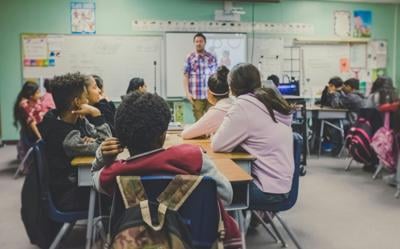(The Center Square) – The Minnesota House passed Senate File 3567, the Education Policy Bill.
The measure addressing a range of school issues passed on a vote of 69-61.
“Last year’s historic education budget bill set the groundwork for generational investments in our children’s education,” Chair Rep. Laurie Pryor, DFL-Minnetonka, said in a statement. “This wide-ranging policy bill picks up where last year’s bill left off. We focus on important measures to give schools flexibility, address students’ mental health, eliminate some paperwork, address protected speech, and more so the focus can be where it belongs – on our kids. This is a bill we can all be proud to support.”
Lawmakers touted bill highlights:
- Require schools to adopt a policy on student cell phone use so school buildings have a consistent approach to help students focus on learning.
- Eliminate unnecessary paperwork so special education teachers can spend more time working with their students and ensure these teachers have the training they need to meet those students’ needs.
- Require schools to provide mental health education for students in grades 4-12 starting in the 2026-27 school year.
- Creates a process for students to access their mental health services through telehealth without needing to leave their school buildings.
- Give school boards more flexibility in determining their schedules by allowing them to implement a four-day school week.
- Improves state oversight and accountability for charter schools.
- Adds a measure of whether students are on track for graduation at the end of ninth grade so schools can intervene early and support students before they get too far behind.
- Establishes clear guidelines for what is protected and unprotected speech in school newspapers to ensure students can engage in spirited debate without fear of censorship for crossing an otherwise subjective line.
- Expand access to PSEO and Concurrent Enrollment courses so more students can earn college credits for free while in high school.
Rep. Ben Bakeberg, R-Jordan, said the bill could have reduced mandates placed on local school districts.
“My real hope is that we would actually listen to the people that do the job every single day. And I think that’s probably my biggest disappointment with this bill is that we didn’t really truly listen,” Bakeberg said on the floor.
The bill now heads to the Senate.









